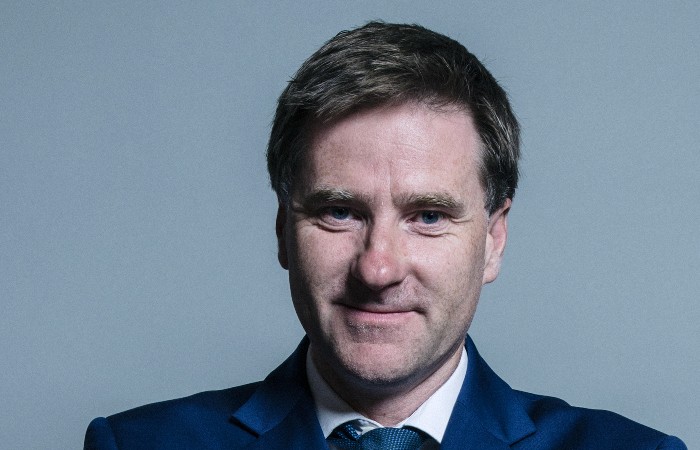Analysis

Sigma conference: Inquiry is considering generic substitution to solve shortages
In Analysis
Bookmark
Record learning outcomes
The health and social care committee chair Steve Brine has said it is "carefully" considering recommending to ministers that pharmacists are given the "autonomy" to provide another version of a medicine that is unavailable on prescription as concerns about shortages grow.
Speaking via video link, Brine (pictured) told the Sigma conference in Sun City, South Africa, that his committee's inquiry, which he said was "midway through gathering all evidence" on a variety of issues such as funding, had heard about "really serious challenges when it comes to supply." Brine revealed one idea that has cropped up regularly during the evidence sessions is generic substitution.
Recounting a recent visit to a pharmacy in his constituency of Winchester, he said: "Three people in the queue ahead of me were told their medication was unavailable. Sound familiar? They had to try another pharmacy, they were told, and promptly faced the same problem or go back to their GP to get a prescription of a different version of the same medicine.
"This was despite the pharmacy having products in stock that would've done the same job. Now, I wonder how many people have had the same experience of that one day. Our recent evidence session heard about the really serious challenges when it comes to supply. And they are really serious. Medicines shortages are an infection that runs the risk of spreading across the body of primary care, not just pharmacy.
"If we don't treat it, the whole system will get sick and it will only get worse, for pharmacists, for patients and for the whole NHS."
Insisting medicines shortages threaten to undermine Pharmacy First and the government's ambition of freeing up 10 million GP appointments a year, Brine said: "The government's primary aim of Pharmacy First is to free up GP appointments. If people are being told that medicines are out of stock, and they need to go back to their GP to get a new prescription, the appointment time gained back from an ear infection could be lost with supply challenges. It's that serious.
"There is potentially a simple solution which we heard time and again in our inquiry. Generic substitution. Pharmacists are highly trained healthcare professionals and their skills need to be recognised and properly used. It seems non-sensical to me that all pharmacists who are experts in medicines don't have the autonomy to make the decision to provide another version of the same medication when the precribed version is unavailable.
"(This) is a suggestion that the committee will be considering carefully when it comes to making our recommendations to ministers. GPs should not have to spend their time re-issuing prescriptions for what is essentially the same medication and condition. And the public shouldn't be expected, as was described to our inquiry, to play 'pharmacy bingo' trying to source the medication they need."
Brine told the conference that 92 per cent of pharmacy teams in England are dealing with medicines supply issues on a daily basis.
Work to do to ensure Pharmacy First realises full potential
He also described Pharmacy First as "an important development" but warned "there is still work to be done to ensure it realises its full potential." Patients, he said, are still unaware of the scheme despite a marketing campaign by NHS England that recently launched.
"When I recently visited (the) pharmacy, a national chain, in my constituency to collect a simple prescription, I was struck by the fact that not a single person in the queue ahead of me was there for Pharmacy First, nor were they given any information to advertise Pharmacy First," Brine said.
Insisting the evidence received by the inquiry "suggests how (Pharmacy First) could go further," he added: "Modelling by the Company Chemists' Association estimates that each year, community pharmacists could free up 42 million GP appointments, screen five million people with undiagnosed hypertension and reduce hospital readmissions by at least 65,000.
"Achieving this kind of potential will be depend on funding and commissioning arrangements, two of the challenges our inquiry has been seeking to understand how to address."
He said the inquiry heard pharmacy funding had "fallen away by 30 per cent in real terms" and witnesses also aired concerns that the community pharmacy contractual framework is 'too complicated' and in need of 'urgent review.' Brine said he agreed with those assessments.

